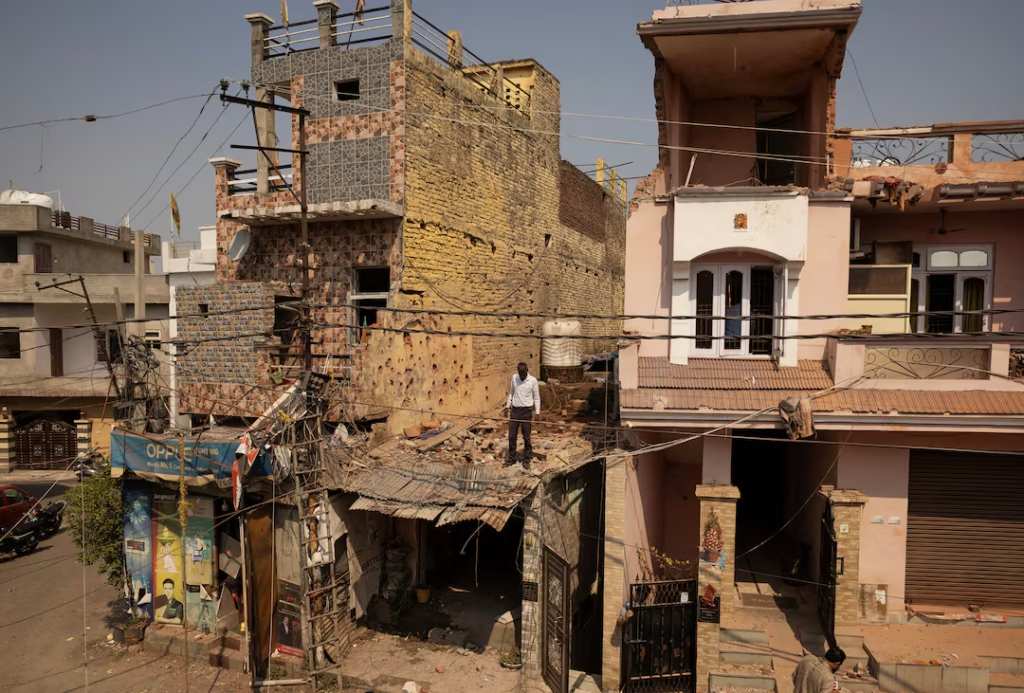🇮🇳🇵🇰 India and Pakistan Exchange Cross-Border Strikes Amid Rising Tensions and Global Appeals for Calm
ISLAMABAD / JAMMU, May 10 (Dopshop.pk) — India and Pakistan launched a series of air and missile strikes against each other’s military sites on Saturday, escalating one of the region’s most serious military standoffs since the Kargil conflict in 1999. The clashes prompted urgent calls from the United States for both nuclear-armed nations to engage in dialogue and avoid further conflict.
Speculation about potential nuclear escalation grew after Pakistan’s military initially indicated a meeting of its top nuclear oversight body was on the cards. However, Defence Minister Khawaja Asif later clarified that no such meeting had been held or scheduled.
Both countries have since signaled a desire to avoid further escalation, at least for now.
Pakistan’s Foreign Minister Ishaq Dar said in a local TV interview:
“If India chooses to pause here, we will also consider stepping back.”
India’s military stated that Pakistani offensives had been “effectively countered and proportionately responded to.”
Security analysts have long warned that the India-Pakistan rivalry, particularly over the disputed region of Kashmir, could spiral into a nuclear confrontation. While India maintains a “No First Use” nuclear doctrine, Pakistan does not.
Defence Minister Asif downplayed immediate nuclear fears, saying:
“That’s a very distant scenario—we shouldn’t even be discussing it right now. Things will likely cool down before reaching that stage.”
🌍 International Pressure to De-escalate
U.S. Secretary of State Marco Rubio spoke by phone with Pakistan’s Army Chief General Asim Munir and India’s Foreign Minister S. Jaishankar, urging both sides to restore direct lines of communication and avoid miscalculation.
Jaishankar reaffirmed India’s stance on platform X (formerly Twitter):
“India’s approach has always been measured and responsible—and remains so.”
💣 Heavy Strikes, Civilian Impact
Pakistan said it carried out strikes on multiple Indian military targets, including a missile depot in northern India, in retaliation for Indian air strikes earlier in the week.
India confirmed limited damage to four air force installations in Punjab and said it had intercepted several high-speed missile attacks from Pakistan.

In Indian-administered Jammu and Kashmir, five civilians were reported dead. Loud blasts were heard in Jammu and Amritsar, with projectiles seen streaking across the skies early Saturday.
“We’ve never experienced this level of attack in Jammu,” said 60-year-old Rajeev Gupta, whose brother was injured by shelling.
Pakistan claimed India had initially launched missile strikes on three of its air bases, including one near Islamabad, but said most were intercepted by its air defenses.
🔥 Operation ‘Bunyanun Marsoos’
Pakistan’s military named Saturday’s offensive “Operation Bunyanun Marsoos”, an Arabic phrase from the Quran that refers to a “solid, united structure.”
This latest wave of violence began after India launched what it called preemptive strikes on “terrorist infrastructure” inside Pakistan, blaming the neighboring country for a deadly attack on Hindu tourists in Kashmir last month — an accusation Pakistan denies.
Since then, the two nations have engaged in daily exchanges of missiles, artillery fire, and drone incursions.
Despite mounting international pressure for peace, military experts say both sides appear to be ramping up their operations.
“The use of drones and ballistic missiles is now routine. Troop movements by the Pakistan Army suggest intentions for further escalation,” said Indian military analyst and ex-army officer Pravin Sawhney.
“This doesn’t look like it’s cooling down anytime soon.”







